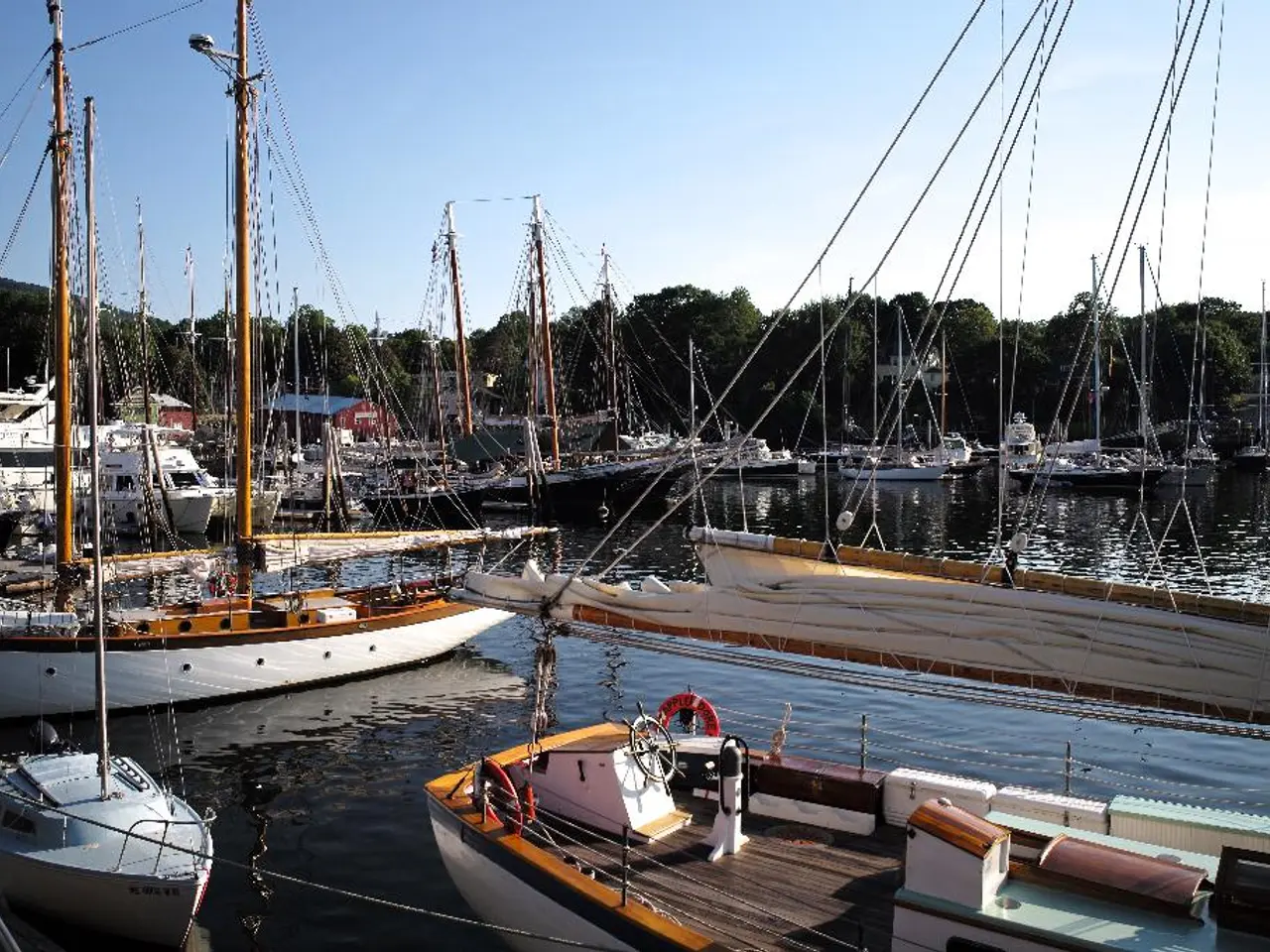Declining Cargo Traffic in the North Baltic Sea Canal
Article Rewrite
The Kiel Canal's traffic has seen a steady decline for the fourth year running, leaving stakeholders in the industry frustrated. The Kiel Canal Initiative, a group advocating for the canal's improvement, has pointed fingers at high costs, congested routes, and outdated infrastructure as the main culprits.
With competitive alternatives like the Suez Canal or the Northern Sea Route, shipping companies are increasingly opting for other options based on factors like ship size, fuel prices, and geopolitical-economic conditions. Add to that evolving global trade patterns and security concerns, and it's no surprise the good ol' Kiel Canal is losing its shine.
In response, the Kiel Canal Initiative has issued a clarion call to politics, demanding upgrades to accommodate larger vessels, better traffic management, more dredging, enhanced environmental protections, and support from government and European Union bodies. The aim? To make the Kiel Canal a preferred route once more, by slashing transit times, costs, and operational risks that have contributed to its decline.
While exact figures on the decreasing traffic and the Kiel Canal Initiative's specific demands weren't available, it's clear they're targeting improvements to infrastructure, operational efficiency, and environmental protections. It's high time the old girl got a facelift! For the most up-to-date and detailed information, do check out official publications from Kiel Canal or German waterway authorities.
- The Kiel Canal Initiative is urging the finance industry to invest in infrastructure improvements for the canal, aiming to boost its competitiveness against alternatives like the Suez Canal and the Northern Sea Route in the transportation industry.
- To regain its popularity, the Kiel Canal needs updates in several areas, including accommodating larger vessels, optimizing traffic management, increasing dredging, enhancing environmental protections, and reducing costs - key concerns highlighted by the Kiel Canal Initiative in the finance and transportation industries.




